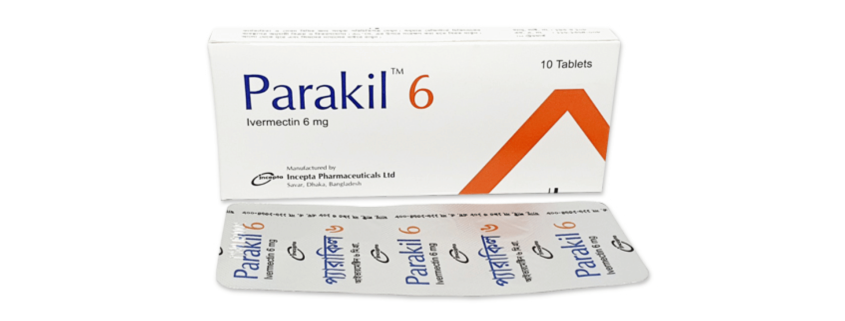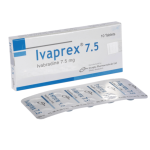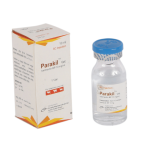Parakil(Ivermectin)
Therapeutic Group: Anti-parasite
Presentation

Parakil 6 Tablet: Each tablet contains Ivermectin USP 6 mg
Description
Ivermectin is a derivative of Avermectins, a family of potent broad-spectrum anthelmintic. Ivermectin binds selectively with high affinity to glutamate-gated chloride ion channels resulting to an increase in the permeability of the cell membrane to chloride ions with hyperpolarization of the nerve or muscle cell, causing paralysis and death of the parasite
Indications
• Strongyloidiasis of the intestinal tract: Ivermectin is indicated for the treatment of intestinal Strongyloidiasis due to the nematode parasite Strongyloides stercoralis.
• Onchocerciasis: Ivermectin is indicated for the treatment of Onchocerciasis due to the nematode parasite Onchocerca volvulus
Dosage & Administration
Strongyloidiasis:
The recommended dosage is a single oral dose.
• If body weight is 15-24 kg then single oral dose is 3 mg
• If body weight is 25-35 kg then single oral dose is 6 mg
• If body weight is 36-50 kg then single oral dose is 9 mg
• If body weight is 51-65 kg then single oral dose is 12 mg
• If body weight is 66-79 kg then single oral dose is 15 mg
• If body weight is equal or greater than 80 kg then single oral dose is 200 mcg/kg body weight
Onchocerciasis:
In mass distribution campaigns for onchocerciasis, the most commonly used dose interval is 12 months. For the treatment of individual patients, re-treatment may be considered at intervals as short as 3 months
• If body weight is 15-24 kg then single oral dose is 3 mg
• If body weight is 26-44 kg then single oral dose is 6 mg
• If body weight is 45-64 kg then single oral dose is 9 mg
• If body weight is 65-84 kg then single oral dose is 12 mg
• If body weight is equal or greater than 85 kg then single oral dose is 150 mcg/kg body weight
Side Effects
Ivermectin has been demonstrated to be generally well tolerated. For the most part, side effects have been mild and transient in nature. Side effects include- diarrhea, constipation, nausea, vomiting, fatigue, abdominal pain, anorexia, dizziness somnolence, vertigo, tremor, pruritus, rash, urticaria etc.
Precautions
Parakil should be taken on an empty stomach with water
Use in Pregnancy & Lactation
Pregnancy Category C.
Safety has not been established in pregnant mother.
Ivermectin is excreted in breast milk in low concentration. Safety in newborn infants has not been established; therefore, the drug should be given to nursing mothers only if the benefit to the mother outweighs the potential risk to the newborn.
Pediatric Use
The safety and efficacy of Ivermectin in pediatric patients weighing less than 15 kg has not been established.
Drug Interaction
Barbiturates (such as Phenobarbital, Butalbital), benzodiazepines (such as Clonazepam, Diazepam, Lorazepam), Sodium Oxybate (GHB) and Valproic acid have drug interactions with Ivermectin. In that case, caution should be applied.
Over Dose
Tingling of feet, weakness, loss of coordination, stomach pain, vomiting, diarrhea, rash, edema, headache, dizziness have been reported. In case of overdose, induction of emesis and/or gastric lavage as soon as possible followed by purgatives and other routine antipoison measures should be taken.
Storage
Do not store above 30 C. Keep away from light and out of the reach of children.
Commercial Pack
Parakil 6 Tablet: Each box contains 1 alu-alu blister strip of 10 tablets



